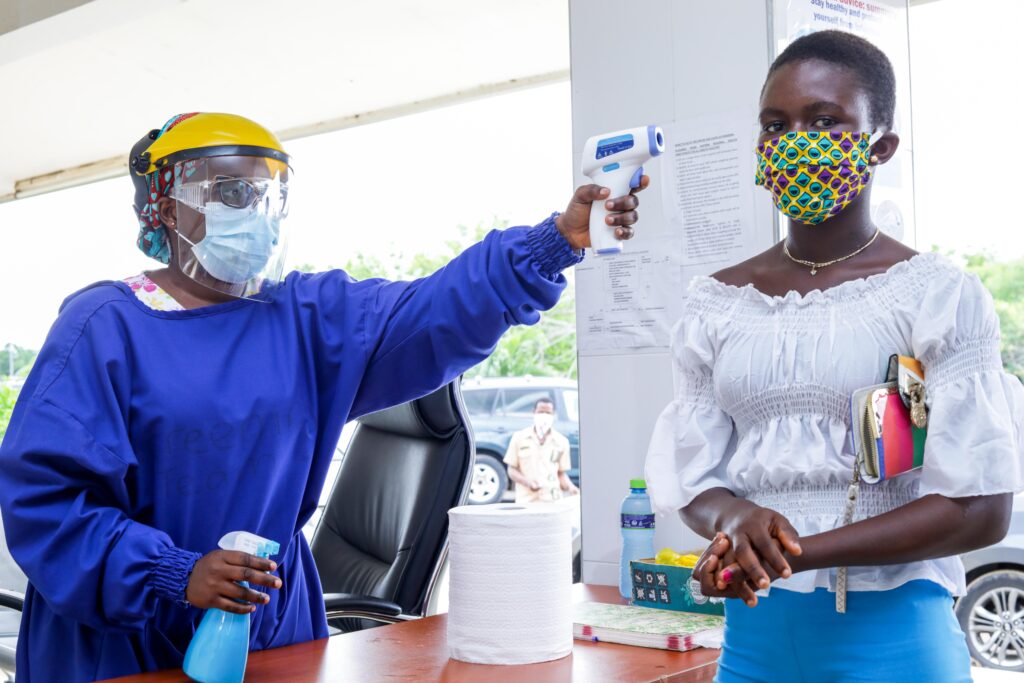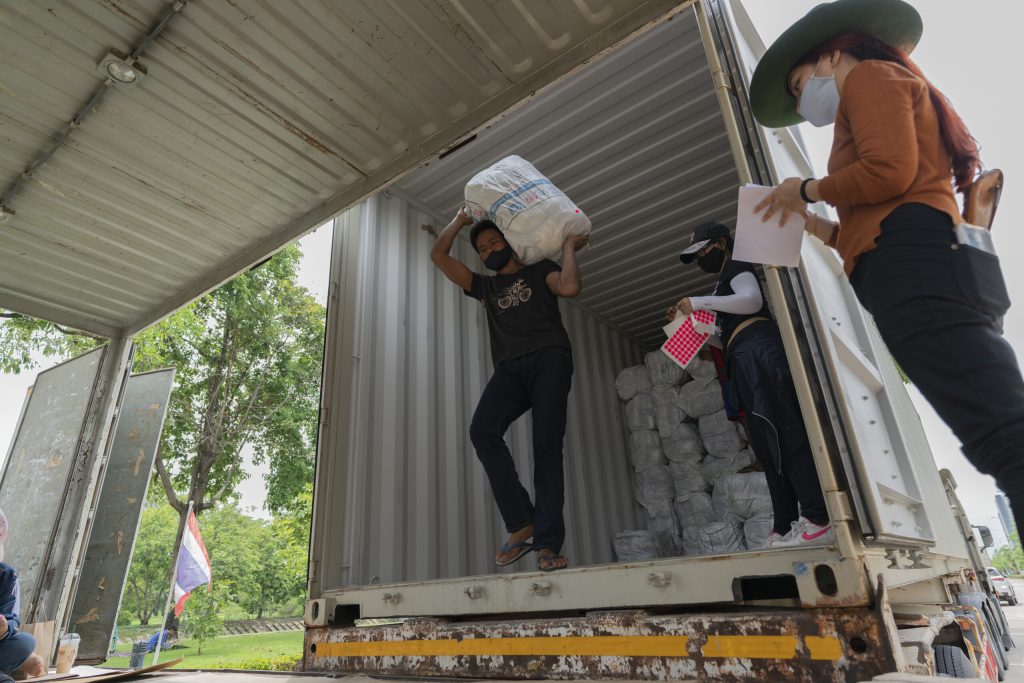MALARIA DURING COVID-19
CONTINUING THE MALARIA FIGHT
The world has made considerable gains against malaria in the last 15 years. However, the COVID-19 pandemic could wipe out these gains. The scale of disruptions to critical malaria care is still being determined. However, there is no question that delays in diagnosis and treatment could cause malaria deaths to rise significantly, easily exceeding COVID-19 deaths in some of the highest malaria burden regions.
PMI’s financial and technical assistance is helping partner countries continue their malaria prevention and control programs during the pandemic. The capacity and systems PMI has helped countries put in place to combat malaria have also positioned them to better respond to COVID-19.
PMI is committed to working together with partner countries and the broader malaria community to ensure prevention campaigns continue and every effort is made to recover and sustain malaria services. PMI is inspired by partner countries’ resilience and creativity in the dual fight against malaria and COVID-19—and optimistic that together we can win both.

Despite the global health crisis, PMI continued to deploy lifesaving malaria interventions in 2020, including enough mosquito nets to protect more than 265 million people. Learn more about how PMI adapted its programs to deliver mosquito nets, insecticides, preventive medicine, and more.
-
Ten of our partner countries distributed insecticide-treated nets which will protect 7.7 million from malaria until 2023.
-
Eight of nine countries sprayed homes protecting an estimated 9.7 million from malaria.
-
Nine eligible partner countries held seasonal malaria chemoprevention campaigns that protected 6.5 million children in 2020.
HOW PMI ADAPTED TO COVID-19
- Working with manufacturers and logistics providers to minimize supply chain disruptions
- Expanding remote supervision and virtual training
- Revising malaria job aids to include COVID-19 safety protocols
- Delivering nets door-to-door to avoid crowded collection points
- Teaching caregivers to administer preventive medicine for children
- Promoting handwashing, mask wearing, and other protective measures
- Providing health education through radio ads, town criers, social media, and more

“When we strengthen health systems in far regions of the world, we reduce the risk of future pandemics that can threaten our people and our economy.”
—President Joe Biden
USAID Administrator Statement: Leading the fight Against Malaria and Protecting the World From Future Pandemics
USAID Administrator Samantha Power issues a statement on the dual occasion of World Malaria Day and the publication of PMI’s 16th Annual Report to Congress
Using television to reinforce the importance of malaria care-seeking during the COVID-19 pandemic in Kenya
How PMI supported production of a short animation to encourage people with fever to get tested for malaria and make them feel safe about coming to health facilities
U.S. Global Malaria Coordinator Op-Ed in The Hill
U.S. Global Malaria Coordinator Dr. Raj Panjabi penned an op-ed for The Hill describing how the COVID-19 pandemic has helped malaria resurge. The impacts of COVID-19 led to 47,000 additional people dying from malaria [...]
2021 Year in Review
As the COVID-19 pandemic dragged on, PMI programs continued to ensure families could prevent and treat malaria
World Malaria Day 2021 Message by U.S. Global Malaria Coordinator Dr. Raj Panjabi
Pandemics are global but their impact is personal. When I first contracted malaria as an infant, my mother was worried sick. We lived in Liberia where, as is still the case in many African countries, [...]
PMI Announces Emergency Loan Guarantee Facility to Shore Up Private Sector Health Care for Malaria During COVID-19
With up to 50 percent of the population in some parts of sub-Saharan Africa seeking care for fever in the private sector, private health care providers play a vital role in ensuring malaria and other [...]
We’d like to hear from you! Please submit general questions and messages to pmicommunications@usaid.gov. Media inquiries should be directed to
press@usaid.gov.

